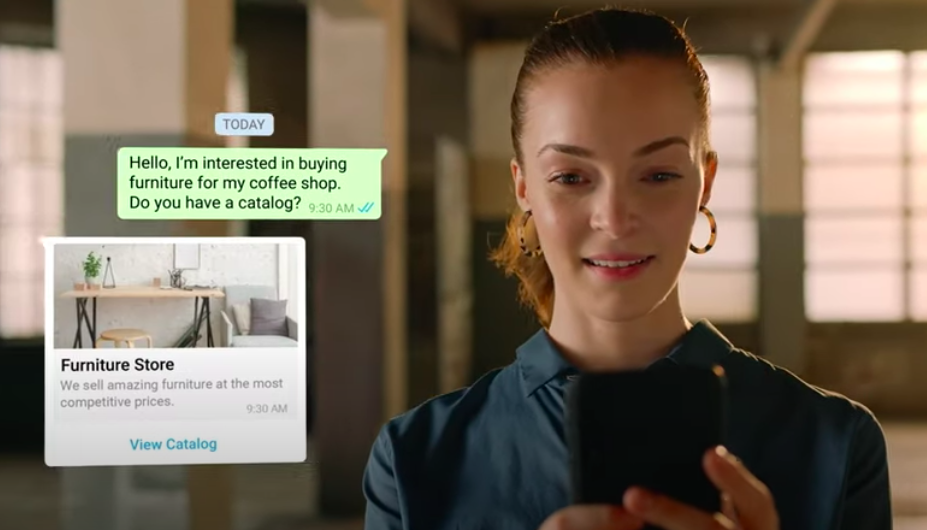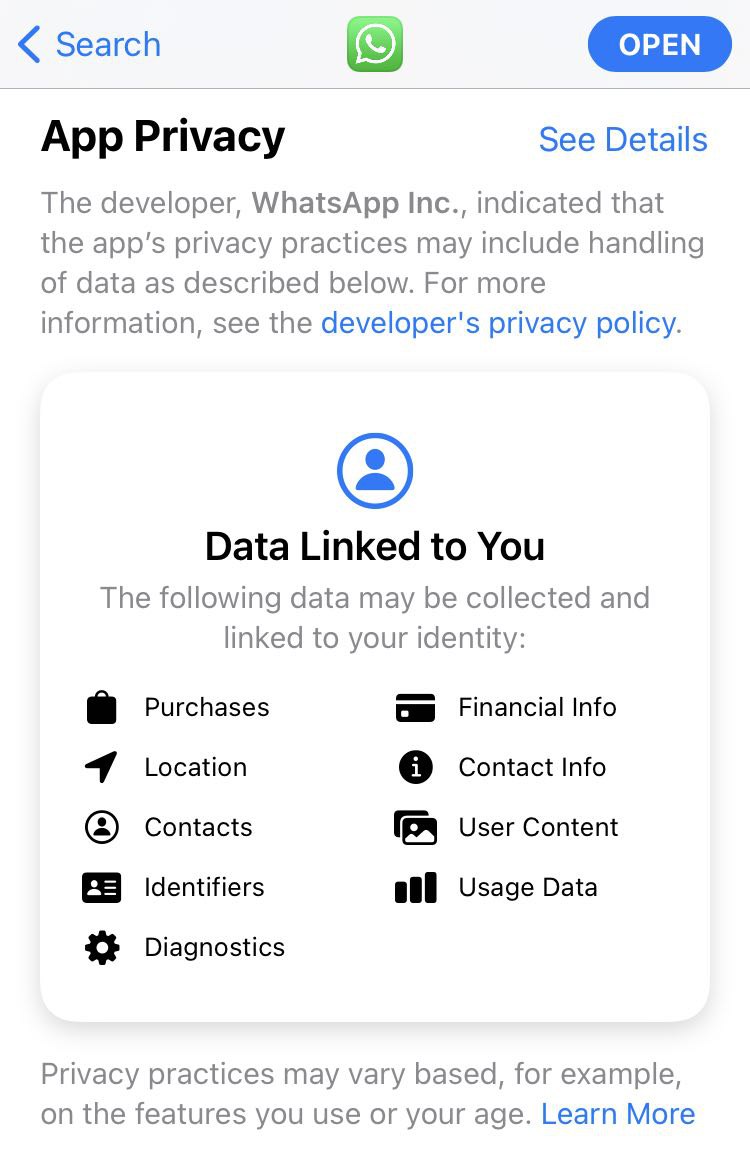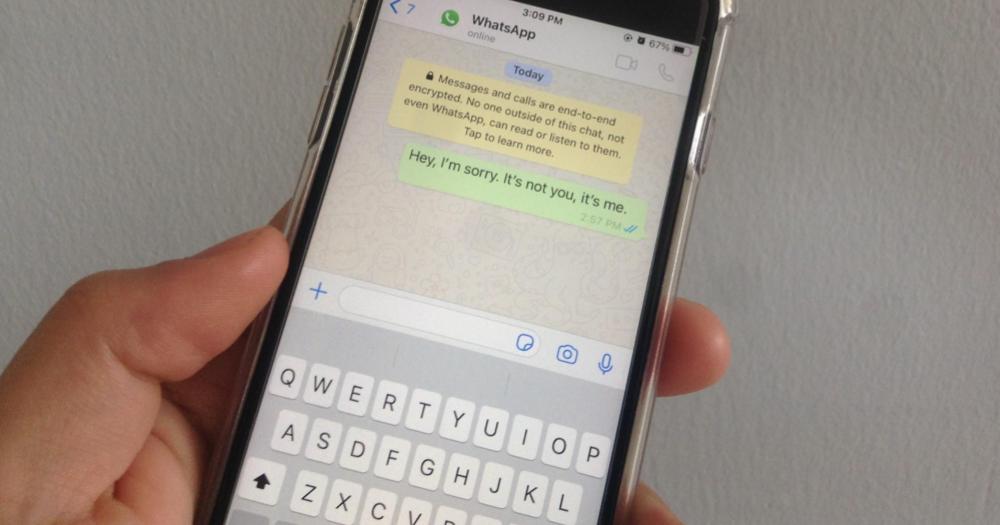Breakups are like sunsets: they happen slowly, then all at once.
Downloads of messaging apps Signal and Telegram surged almost overnight, as millions of users sought out alternatives to the toxic ex-messaging app they once loved.
Signal now occupies the top spot on both the iPhone and Android app stores, with Telegram in second place — buoyed by an unprecedented surge of new users earlier this week.
What went through the mind of those heartbroken users, who finally decided that enough was enough, and to part ways with WhatsApp once and for all?
You're likely to be able to put yourself in their shoes quite easily.
After all, most of us have also been going steady with WhatsApp since sometime after 2009, when it was launched.
How's your relationship going?
Things between you and WhatsApp have not always been smooth, no doubt, but in spite of some rough patches here and there, you've both stayed loyal.
Your relationship probably even survived some major upheavals (like moving from an Android OS to iOS, or vice versa) which caused some friction, but didn't end in a break up.
WhatsApp's new privacy policy
But on Jan. 6, 2021, things started to get more complicated after WhatsApp dropped you a little note, informing you that it was updating its privacy policy.
Maybe you didn't personally get the note, but heard about it elsewhere.
You didn't think much of it at first, after all, this wasn't the first time that WhatsApp had done something like that — the privacy policy was updated in 2019 and 2016, from its initial version in 2012.
And now, in the last week or so, you've been hearing more whispers and rumours about some things that you've always suspected WhatsApp was doing behind your back — you asked WhatsApp to tell a friend that you were keen to buy those shoes, something WhatsApp promised not to tell anyone.
But, two days later, WhatsApp's close friend Facebook tried to sell you a pair. You chose to let it go then, but now it's on your mind again.
WhatsApp is still really good for you, though. It really helps you with your messaging needs, especially since your friends, family, and even your colleagues have all gotten along well with WhatsApp. A breakup is going to be messy and disruptive, so you'd better make sure you have all the facts.
What did WhatsApp say it was changing?
Nothing much, according to WhatsApp.
Its FAQs say that the privacy policy update "includes changes related to messaging a business on WhatsApp, which is optional".
WhatsApp also went on to also explain how things were before, recapping the info that WhatsApp does not have access to, in a list of FAQs which it tweeted on Jan. 12.
WhatsApp is not going to read your chats, or share them with Facebook
First of all, WhatsApp was quick to clarify — as the first item on its FAQ page — that it cannot access any of the content of chats or calls between individual users, which are end-to-end encrypted (meaning that only the end-users at both sides of the conversation get to read messages).
This was the arrangement even before the privacy policy update, since 2016.
WhatsApp also clarified that it wasn't going to keep your call or message logs, share your contacts with Facebook, or see your location.
What does WhatsApp say about interacting with businesses?
So, as WhatsApp explains, your relationship isn't going to be affected at all, unless you and WhatsApp go shopping together, or if you use WhatsApp to interact with business accounts.
 Screenshot via video by WhatsApp.
Screenshot via video by WhatsApp.
WhatsApp explains that you don't have to, if you don't want to, though you know that WhatsApp has wanted to help connect you to businesses, and go shopping with you, for a long time.
And if you do decide to take up WhatsApp's offer, information gleaned from messages you send to businesses, and your shopping activity, can be used for marketing purposes. This means that businesses you interact with can send you more targeted advertising, and you might have a more personalised shopping experience on Facebook.
WhatsApp also wants to hang on to your credit card details — just to make things easy when you shop together, of course.
You might not see any of this as a big deal at all, as you might already be doing it with other apps like Facebook and Instagram.
But, you might also not be keen on any of that at all.
If that's the case for you, and if you don't plan to use WhatsApp to shop or interact with business accounts, you're not going to be affected by the new changes, and things are going to be just the same as they are now, WhatsApp promises.
How are things now, though?
WhatsApp's FAQs said that the updated document "provides further transparency" about how WhatsApp collects and uses data from its users and the updated privacy policy does go into significantly greater detail as compared to its previous version dated Dec. 19, 2019.
If that is so, why are so many users suddenly losing trust and abandoning the near-ubiquitous messaging platform just when things are getting better?
It's not because transparency is bad, but because of what this new transparency is revealing.
WhatsApp has always been collecting data
At around the same time that WhatsApp was crafting its new privacy policy, Apple's new rules for developers came into effect, in December 2020.
On newer versions of iOS 14, Apple is now forcing app developers to be much more upfront about the personal data that their apps collect from users.
A number of Apple users may have found out for the first time that WhatsApp had, all along, been collecting quite a bit of data from its users:
 Screenshot via iOS app store.
Screenshot via iOS app store.
Facebook's growing influence on WhatsApp
As WhatsApp's owner, Facebook is its parent, and has great influence over its relationship with you.
You might have noticed Facebook appearing more in your interactions with WhatsApp over the years, too.
You've already seen how Instagram — which also counts Facebook as its parent — changed since it came under Facebook's parentage, with one recent example being the fact that since 2020, Instagram keeps trying to get you to shop more, with the "activity" tab being replaced by the "shop" tab on almost every screen in the app.
And you might be wondering whether some of these changes might — sooner or later — happen to WhatsApp as well.
WhatsApp's new privacy policy definitely suggests that Facebook will increasingly be more involved, with a new section titled "How We Work With Other Facebook Companies".
It promises that Facebook, WhatsApp, and a few other associated companies, will exchange information to help improve things for everyone.
For example, information exchange will help the companies to suggest "friends or group connections" and "interesting content" to you, as well as helping you to use Facebook products within WhatsApp — for example, "allowing you to connect your Facebook Pay account to pay for things on WhatsApp" — all good stuff if that's what you're looking for.
But it's also understandable if you're worried, since Facebook's public track record for data security has been quite fraught over the years, with one high-profile example being the fact that it was implicated in a massive data leak which possibly influenced the 2016 US Presidential elections.
Should I download Signal and/or Telegram?
All of the above is probably part of why so many users have left WhatsApp for greener pastures, and you might be thinking about doing the same.
If you're hyper-sensitive about data privacy and who (or what) gets to see your data, you probably already broke up with WhatsApp long ago, and this section may not be so relevant for you.
But, if you are keen to reduce the amount of data privacy you are giving up in exchange or convenience, here are some things to think about.
If you use WhatsApp for work, then a "clean break" probably isn't an option. But you can think about reducing your reliance on its services by moving your personal chats onto other apps, effectively breaking up with WhatsApp so that you're no longer in a committed relationship, and only interacting with it when you need to.
What kind of relationship are you looking for?
Signal and Telegram aren't exactly out there looking to be your rebound.
They may be interested in being friends, but neither of the two competing messaging apps is interested the type of close relationship you have with WhatsApp.
For example, Signal doesn't even want to know who your friends and contacts are. Unlike WhatsApp or Telegram, it doesn't even want to know which of your contacts use the app too, or what their phone numbers are.
Instead, when you give Signal access to your contacts list, the app scrambles your contacts' phone numbers into "hashed" outputs, which are then sent to Signal to check against its database of users.
There's also the fact that neither Telegram nor Signal are keen on integrating things like shopping and e-payment — at least not for now.
Telegram has, however, announced that it plans to roll out advertising and launch new paid services from this year, though its founder assured users via his channel that the service would "remain independent and stay true to [its] values," by keeping ads out of one-to-one conversations between users, and keeping all its current services free, among other promises.
Network effects
Early users of WhatsApp might remember the days when they had to advertise the then-newfangled service to their friends as a better, free alternative to SMSes. But they would also recall the wave of new users who came on board once their numbers had hit a critical mass.
In the same way, the current interest in WhatsApp alternatives probably means that now is a good time to instigate your friend groups' move off the 12-year-old platform, thanks to network effects, which social media or communication apps tend to have, mean that it gets easier for Telegram's and Signal's networks to grow as they acquire more users.
And Signal and Telegram taking top spot on the app stores for both iOS and Android devices could mean that some of your friends and family have already become adopters.
Mothership Explains is a series where we dig deep into the important, interesting, and confusing going-ons in our world and try to, well, explain them.
This series aims to provide in-depth, easy-to-understand explanations to keep our readers up to date on not just what is going on in the world, but also the "why's".
Totally unrelated but follow and listen to our podcast here
Top image via
If you like what you read, follow us on Facebook, Instagram, Twitter and Telegram to get the latest updates.
